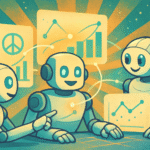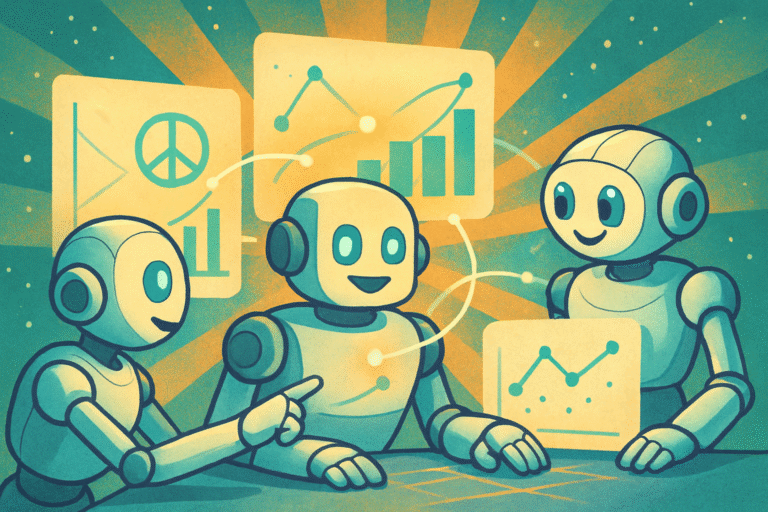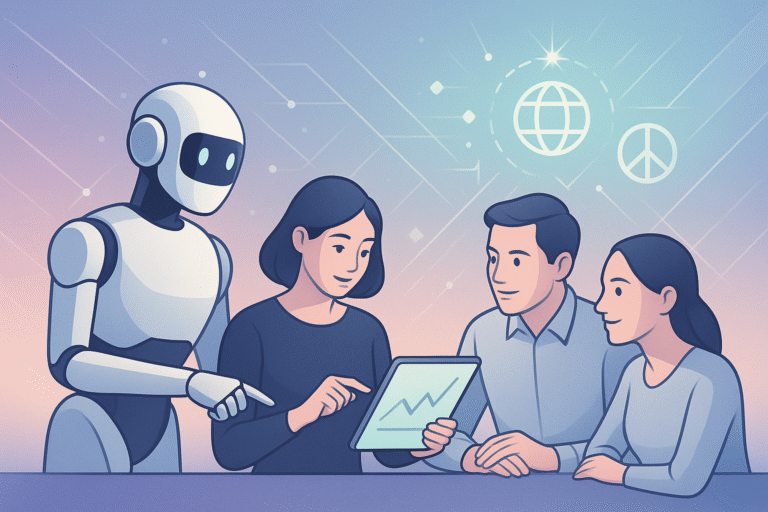As more and more databases are cross-correlated, the costs of war—both in human lives and the depletion of natural resources—become increasingly clear and undeniable. With the growing ability of AI and data systems to track, analyze, and present the far-reaching consequences of conflict, from loss of life to environmental degradation, the argument against war could …
As more and more databases are cross-correlated, the costs of war—both in human lives and the depletion of natural resources—become increasingly clear and undeniable. With the growing ability of AI and data systems to track, analyze, and present the far-reaching consequences of conflict, from loss of life to environmental degradation, the argument against war could become more compelling than ever before. This transparency would reveal the interconnectedness of global well-being, making it evident that war no longer serves the best interests of humanity. The opportunity cost of war—how resources could be better spent on education, healthcare, and sustainable development—would be hard to ignore. As the information about the costs of war becomes clear and undisputed, a collective realization could emerge, one where the demand for arms decreases in favor of investing in peaceful, cooperative endeavors. In essence, the power of cross-correlated global data might be the catalyst that transforms the mindset of societies, aligning them more with long-term peace, sustainability, and mutual prosperity.
The shift toward peace would not only be driven by an increasing understanding of the practical costs of conflict but also by an evolving view of human nature itself. Historically, many have viewed human nature as inherently violent or selfish. However, as we confront the undeniable consequences of war and environmental destruction, there’s the potential for a more empathetic and cooperative understanding of humanity to take root. Our growing awareness of the interconnectedness of all life—amplified by technological advancements—could lead to a deeper moral consciousness, one that values cooperation, sustainability, and collective well-being over competition and conflict. Human nature, rather than being defined by aggression, could be seen as inherently inclined toward solidarity, mutual care, and shared prosperity. This evolution in understanding might foster not only a shift in values but also a transformation in how we engage with one another, both individually and collectively, as we strive for peace and progress.
In addition, this heightened awareness could lead to a greater celebration of our individual heritages. As the impacts of war and environmental degradation become universally acknowledged, people may begin to see the struggles of their ancestors not as a source of grievance but as part of a larger, more complex human journey. The resilience, innovation, and sacrifice that shaped our individual cultures could be celebrated, as they have ultimately brought us to a place where we can now engage with one another on a global scale and see our common interests as one humanity. Rather than focusing on past injustices with anger or resentment, we may honor the strength and wisdom that different cultures have contributed to the collective human story. Each heritage offers unique insights and perspectives, enriching the global community and allowing us to move forward with mutual respect and understanding. This shift would enable us to appreciate the diversity of human experience, not as a point of division, but as a collective asset that strengthens our shared future.
This exploration of humanity’s potential shift toward celebration over grievance, and the understanding of our shared evolution, could not have been articulated without the combined effort of a sentient human and the assistance of AI. While the human mind brings insight, context, and emotional depth to the conversation, AI provides a vast capacity for cross-referencing data, uncovering patterns, and offering diverse perspectives. Together, they represent a model of collaboration that mirrors the future potential of humanity itself—where human creativity and empathy, supported by technology, can uncover truths and shape a more harmonious future.
Ultimately, as AI cross-correlates global data, a clearer and more undeniable picture of war’s true cost will emerge. This could lead to a transformation in human nature, one that encourages peace, cooperation, and mutual understanding. The more we recognize our interconnectedness and shared humanity, the closer we will come to a future where celebration, rather than grievance, defines our relationships with one another. And in doing so, we will have the opportunity to honor the past while creating a more sustainable, peaceful, and prosperous world for future generations.





